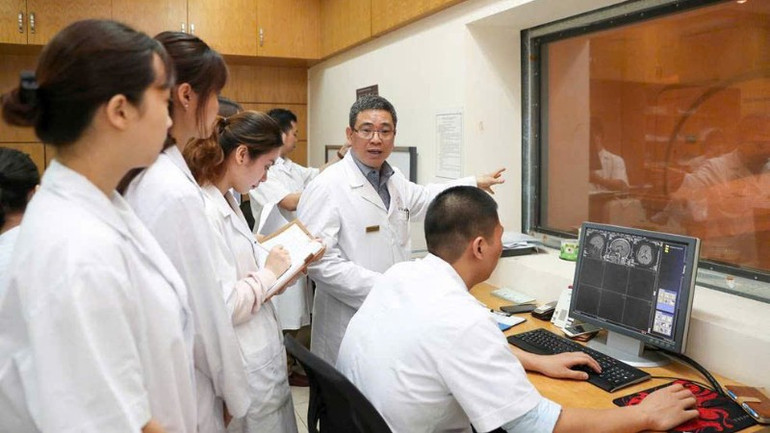
Students from the University of Medicine and Pharmacy practice at a central hospital.
Aiming to become a hub for high-quality medical education and global integration, the University of Medicine and Pharmacy - Vietnam National University, Hanoi (VNU-UMP) has officially launched a master's degree program in English for international students, starting in late 2025.
Professor Le Ngoc Thanh, Rector of VNU-UMP, emphasized that this is a strategic move to expand international academic collaboration and affirm the university’s position in the region and globally.
The English-language master's program has been developed in line with accreditation standards from the Ministry of Education and Training, Vietnam National University, and leading medical programs in the region. With state-of-the-art facilities, modern laboratories, and 29 affiliated central hospitals in Hanoi, the program offers an ideal environment for students to combine theoretical learning with hands-on clinical practice.
Tailored for international students - especially those from India, where demand for skilled healthcare professionals is rapidly increasing - the program is conducted entirely in English to help learners immerse themselves in an international academic environment and prepare for global careers in healthcare, right in Vietnam.
The program includes four specialized majors: Internal Medicine, Surgery, Pediatrics, and Radiology & Nuclear Medicine.
With a faculty composed of leading experts with extensive international teaching and clinical experience at central hospitals, the program ensures advanced, in-depth training aligned with global medical education standards.
In addition to English instruction, students will also take introductory Vietnamese language courses to support daily communication, social integration, and cultural adaptation during their studies in Vietnam.
By launching this program, VNU-UMP not only meets the growing demand for qualified healthcare professionals in developing countries but also strengthens its role as a pioneer in internationalized education and regional integration. It contributes to the development of high-quality medical human resources, especially in global health and public healthcare.
Nhan Dan